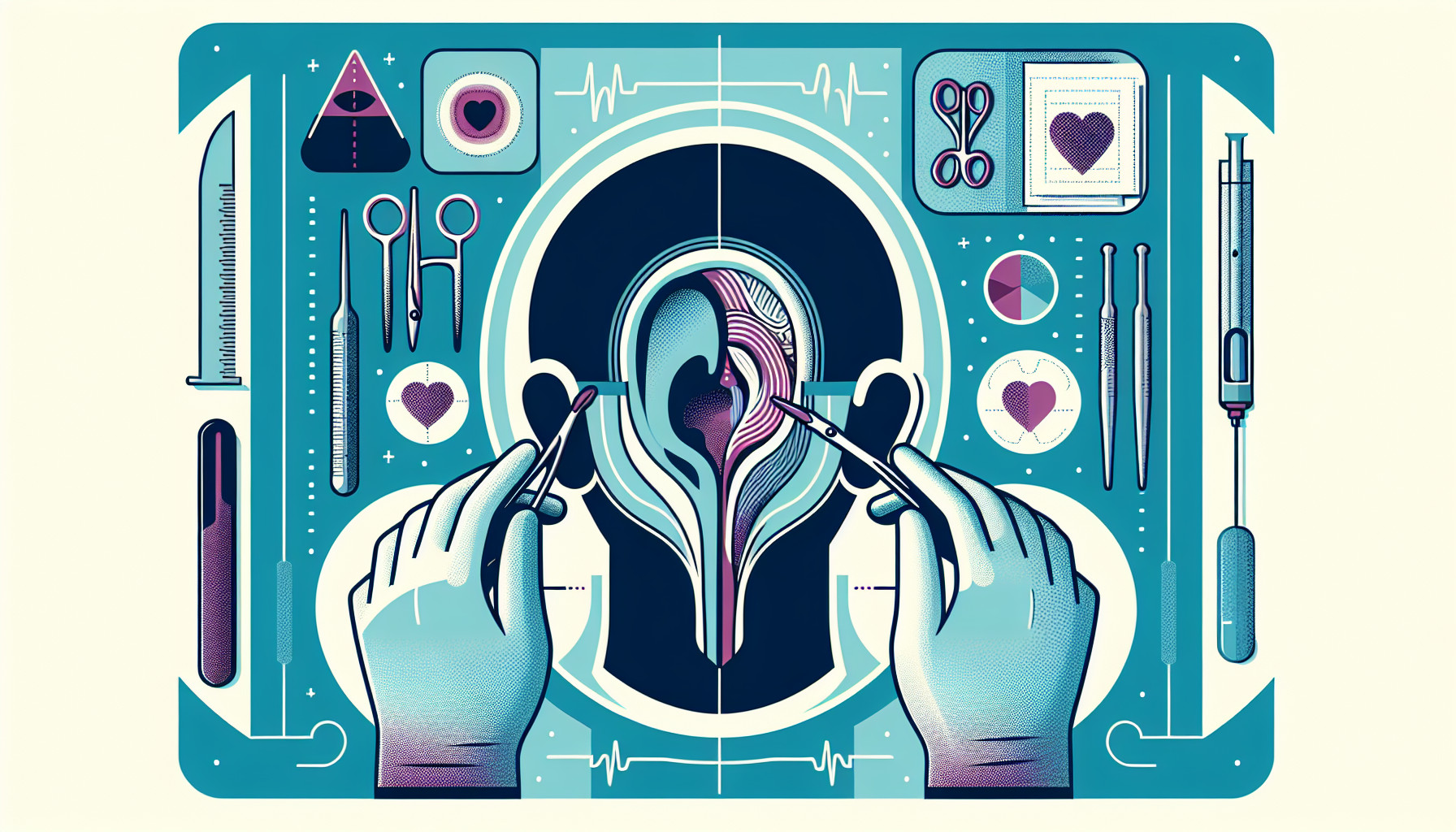Our Summary
This research paper investigates the impact of nose surgery on problems related to the Eustachian tube, which connects the middle ear to the back of the nose. It’s important because issues with the Eustachian tube can cause symptoms like ear pain, popping, or a feeling of fullness in the ear. The researchers looked at patients who had either endoscopic sinus surgery (a procedure that opens the sinuses), nose straightening surgery (septoplasty), or both.
They divided the patients into three groups based on their surgery and measured their Eustachian tube problems using a questionnaire (ETDQ-7) before and three months after surgery. They also used two other questionnaires (SNOT-22 and NOSE) to measure other sinus and nasal symptoms.
The results showed that about a quarter to a third of patients in each group had Eustachian tube problems. However, the scores on the ETDQ-7 questionnaire significantly dropped after surgery for all patients, indicating an improvement in their symptoms. The scores on the other two questionnaires also decreased, showing an overall improvement in sinus and nasal symptoms.
The researchers concluded that patients with chronic sinusitis and/or a deviated septum (the wall between the nostrils) who also have Eustachian tube problems can experience significant improvement after surgery. They also found that nasal blockage and chronic sinusitis symptoms can affect Eustachian tube symptoms.
FAQs
- How does nose surgery impact problems related to the Eustachian tube?
- What were the results of the study in terms of improvement in Eustachian tube problems after surgery?
- Can patients with chronic sinusitis and/or a deviated septum and Eustachian tube problems benefit from surgery?
Doctor’s Tip
A helpful tip a doctor might tell a patient about ear tube surgery is to follow post-operative care instructions carefully, including keeping the ear dry and avoiding activities that may cause pressure changes in the ear (such as diving or flying). It’s also important to attend follow-up appointments to ensure proper healing and monitor for any complications. Finally, be sure to communicate any changes or concerns with your doctor to ensure the best outcome from the surgery.
Suitable For
Therefore, patients who are recommended ear tube surgery typically include those with chronic sinusitis, a deviated septum, or other nasal issues that may be contributing to Eustachian tube dysfunction. These patients may experience symptoms such as ear pain, pressure, or fluid buildup in the middle ear, and may benefit from ear tube surgery to help alleviate these symptoms. It is important for patients to consult with an ear, nose, and throat specialist to determine if ear tube surgery is the appropriate treatment for their specific condition.
Timeline
Before ear tube surgery:
- Patient may experience frequent ear infections, fluid buildup in the middle ear, hearing loss, balance issues, or speech delays
- Patient may have been prescribed antibiotics, ear drops, or other medications to treat ear infections
- Patient may have undergone hearing tests or ear exams to assess the extent of the ear issues
- Patient and their healthcare provider may have discussed the benefits and risks of ear tube surgery
After ear tube surgery:
- Patient undergoes a relatively quick and low-risk surgical procedure to insert ear tubes into the eardrums
- Patient may experience temporary discomfort, drainage, or dizziness after the surgery
- Patient may need to follow post-operative instructions such as keeping the ears dry, avoiding water activities, or using ear drops
- Patient may have a follow-up appointment with their healthcare provider to ensure the ear tubes are functioning properly
- Patient may experience improved hearing, reduced ear infections, and overall better ear health after the surgery.
What to Ask Your Doctor
Some questions a patient should ask their doctor about ear tube surgery include:
- What are the potential risks and complications associated with ear tube surgery?
- How long does the procedure typically take, and what is the recovery process like?
- Will I need to follow any specific post-operative care instructions?
- How long do ear tubes typically stay in place, and will they need to be replaced in the future?
- What are the expected outcomes of ear tube surgery in terms of relieving Eustachian tube problems and improving symptoms?
- Are there any alternative treatments or therapies that could be considered instead of ear tube surgery?
- How will ear tube surgery impact my ability to hear and any existing hearing loss?
- Will I need to follow up with an audiologist or ENT specialist after the surgery for monitoring?
- Are there any specific lifestyle changes or precautions I should take to prevent future Eustachian tube problems?
- What is the success rate of ear tube surgery in patients with similar symptoms and conditions?
Reference
Authors: Lee IH, Kim DH, Kim SW, Kim SW. Journal: Eur Arch Otorhinolaryngol. 2022 Oct;279(10):5017-5023. doi: 10.1007/s00405-022-07344-4. Epub 2022 Mar 29. PMID: 35352146
